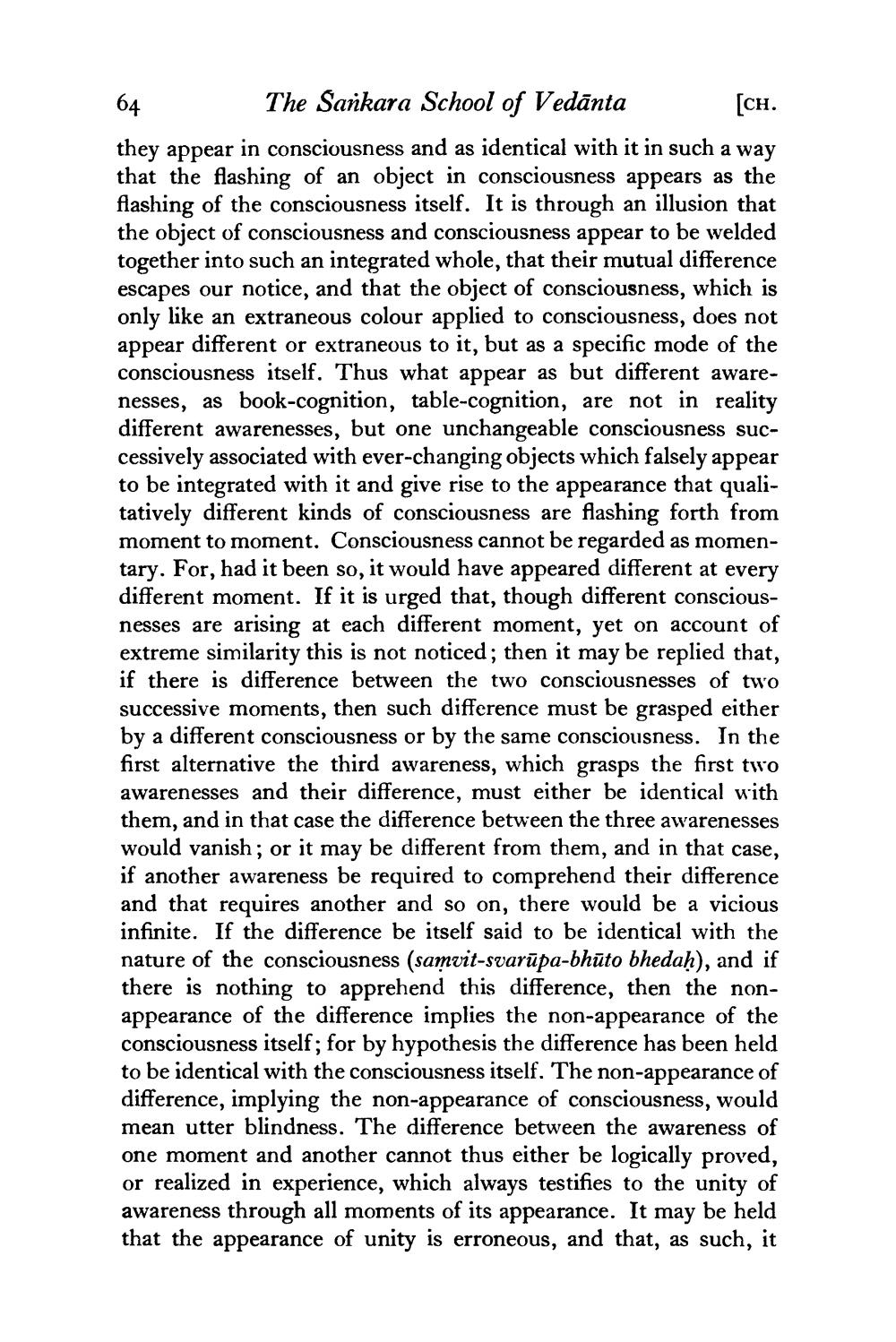________________
64
The Sankara School of Vedānta
CH. they appear in consciousness and as identical with it in such a way that the flashing of an object in consciousness appears as the flashing of the consciousness itself. It is through an illusion that the object of consciousness and consciousness appear to be welded together into such an integrated whole, that their mutual difference escapes our notice, and that the object of consciousness, which is only like an extraneous colour applied to consciousness, does not appear different or extraneous to it, but as a specific mode of the consciousness itself. Thus what appear as but different awarenesses, as book-cognition, table-cognition, are not in reality different awarenesses, but one unchangeable consciousness successively associated with ever-changing objects which falsely appear to be integrated with it and give rise to the appearance that qualitatively different kinds of consciousness are flashing forth from moment to moment. Consciousness cannot be regarded as momentary. For, had it been so, it would have appeared different at every different moment. If it is urged that, though different consciousnesses are arising at each different moment, yet on account of extreme similarity this is not noticed; then it may be replied that, if there is difference between the two consciousnesses of two successive moments, then such difference must be grasped either by a different consciousness or by the same consciousness. In the first alternative the third awareness, which grasps the first two awarenesses and their difference, must either be identical with them, and in that case the difference between the three awarenesses would vanish; or it may be different from them, and in that case, if another awareness be required to comprehend their difference and that requires another and so on, there would be a vicious infinite. If the difference be itself said to be identical with the nature of the consciousness (samvit-svarūpa-bhūto bhedaḥ), and if there is nothing to apprehend this difference, then the nonappearance of the difference implies the non-appearance of the consciousness itself; for by hypothesis the difference has been held to be identical with the consciousness itself. The non-appearance of difference, implying the non-appearance of consciousness, would mean utter blindness. The difference between the awareness of one moment and another cannot thus either be logically proved, or realized in experience, which always testifies to the unity of awareness through all moments of its appearance. It may be held that the appearance of unity is erroneous, and that, as such, it




